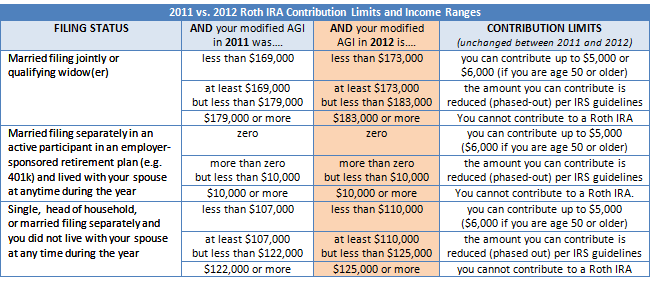Vanguard ROTH IRA Review 2015
Post on: 16 Март, 2015 No Comment

Vanguard ROTH IRA Commissions
- $7 first 25 trades, $20 subsequent trades for stocks/etfs for account with less than $50,000
- $7 for account with $50,000–$500,000 invested in Vanguard products (Voyager Services)
- $2 for account with $500,000–$1,000,000 invested in Vanguard products (Voyager Select Services)
- Free for first 25 trades, $2 for subsequent trades for account with $1,000,000-$10,000,000 (Flagship Services)
- Free for first 500 trades, $2 for subsequent trades for account with $10,000,000+ (Flagship Select Services)
- Options: $20 + $1 per contract (Voyager: $7 + $1 per contract; Voyager Select and Flagship: $2 + $1 per contract)
- Mutual funds: Vanguard mutual funds — free. All others — Standard: $35; Voyager® and Voyager Select®: $20; Flagship®, $8
- U.S. Treasury: No commission
- Mortgage-backed securities: $50 per transaction; GNMA minimum purchase: $25,000
Investment Selection
Vanguard sells more than 100 proprietary mutual funds that are suitable for IRAs. Many are indexed to general or specific market averages. These funds have soared in popularity because their inherently low expense ratios. By most measures, index funds achieve higher overall returns than actively managed funds because of these low expense ratios.
Vanguard is also a leader in Exchange Traded Funds (ETFs). ETFs are essentially mutual funds that can be bought and sold anytime during trading hours on the major stock exchanges rather than via end of the day pricing used for traditional mutual fund. ETFs appeal to investors who prefer to trade their mutual funds on a bid/ask basis for more immediate results. Vanguard’s ETFs, like most ETFs, are all passively managed, which means managed with the goal of replicating the rate of return of a specific investment index such as the S&P 500 Index. All ETFs can be owned in an IRA account.
Vanguard’s brokerage unit allows customers to buy and sell individual stocks and bonds. However, commissions are substantially higher than commissions charged by the leading discount brokers. Discounts and incentives such as free trades are available for investors with more than $50,000 invested in Vanguard assets. But any investor with a small portfolio, who wants to trade stocks, bonds, and/or non-Vanguard mutual funds and ETFs, should deal with a discount brokerage that offers commissions that are more competitive.
One investment Vanguard offers that many online and discount brokers do not offer are Certificates of Deposits (CDs). Vanguard’s CD commissions are higher than a commercial bank may charge. But if CDs are a significant part of your IRA portfolio, the account integration with other investments Vanguard offers is worth considering.
Not to be overlooked is the Vanguard Variable Annuity (VVA). In the 1980s and 1990s, annuities and cash-value life insurance policies were dismissed as obsolete, old school investments. They couldn’t compete with robust stock market gains and the mushrooming popularity of mutual funds as the preferred investment of the middle class.
But the new generation of annuities like the VVA is tied to stock market performance rather than a massive bond portfolio, so returns are more competitive. In addition, annuities have reduced fees and expenses to the point where they are more in line with mutual fund fees and expenses. Vanguard touts their VVA as one of the lowest cost annuity plans in the market. A choice of 17 portfolios is available, and the VVA offers a guaranteed income option.
Features
IRAs are more complicated than taxable investment accounts due to the tax reporting differences and the complexity of hiring custodians to insure fiduciary responsibility. Services such as account setup, administration, and tax reporting for such things as early withdrawal penalties or Required Minimum Distributions (RMD) should be available to an investor. Providing these services should be a top priority for a competent broker.
Retirement planning calculators and guides are almost a requirement for any IRA provider due to the rapidly increasing number of Baby Boomers reaching retirement age. Vanguard has a comprehensive retirement section on their website that is easy to navigate. The site has a high degree of intuitiveness built in and is presented in a clean, easy to read format. Vanguard does a solid job, although no website is flawless.
Their retirement section is broken down into subsections: Saving for Retirement, Nearing Retirement, and Living in Retirement. Useful categories since retirement means different things to different people at different ages.
Vanguard regularly offers free webinars on a multitude of financial topics. The website has a section titled Insights that is the portal to investor education in the areas of retirement, saving and investing, markets and economy, and taxes. All are useful to an IRA investor, especially one who may be interested in doing more active monitoring or trading of his/her portfolio.
The Good
- Some of the lowest annual fees and expenses in the business for mutual funds
- A large variety of index mutual funds that provide superior returns
- Access to more than 15,000 other mutual funds
- Courteous, professional, and prompt service
- Easy access to education and information on retirement and retirement accounts
- Customer service, education, and guidance available on an easy to navigate website
The Bad
- On the high end of commission structure when compared to discount brokers
- No personal hand holding by a broker, or individual investment advice (common to all online discount brokers), unless the investor meets certain high net asset thresholds.
Conclusion
To summarize: If you don’t intend to be an active trader of stocks and bonds, then low administration fees and expense ratios, a wide assortment of index mutual funds, and a focus on retail customers and retirement accounts makes Vanguard a company to seriously consider for your Individual Retirement Account.














